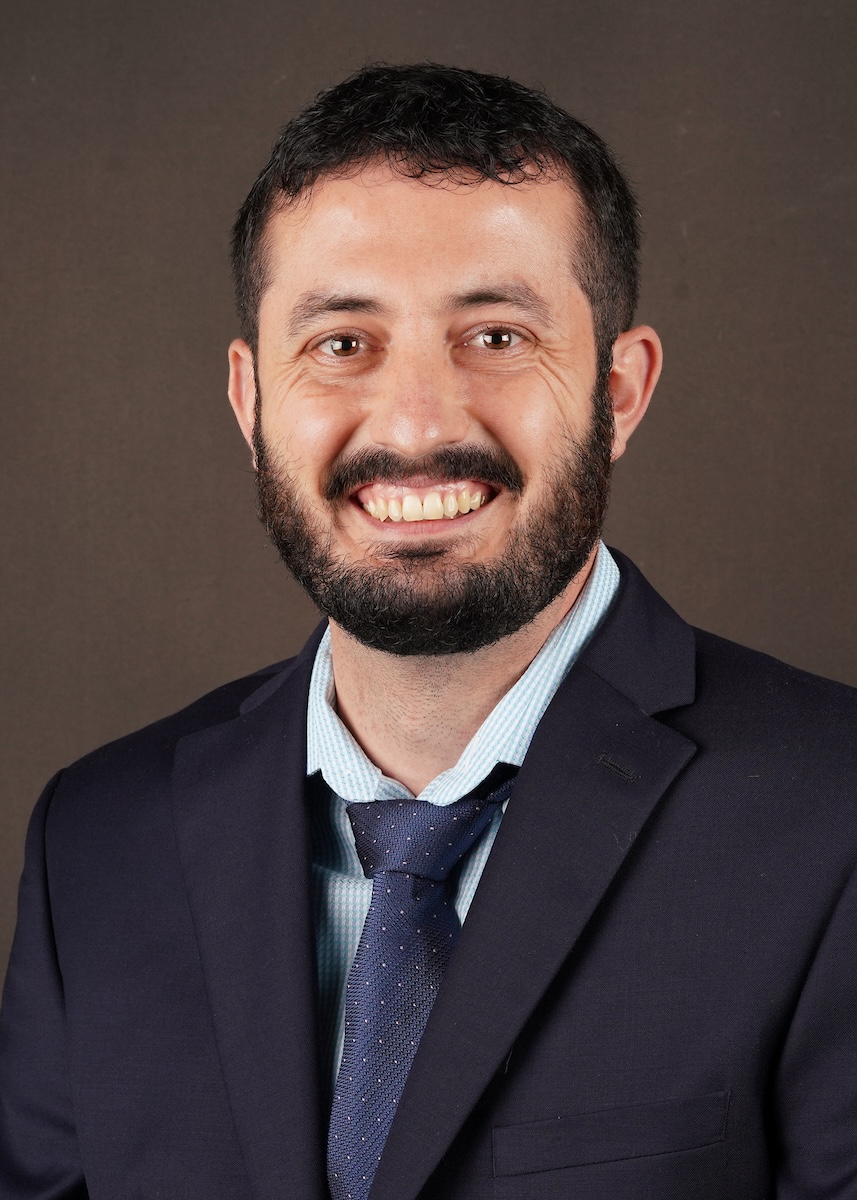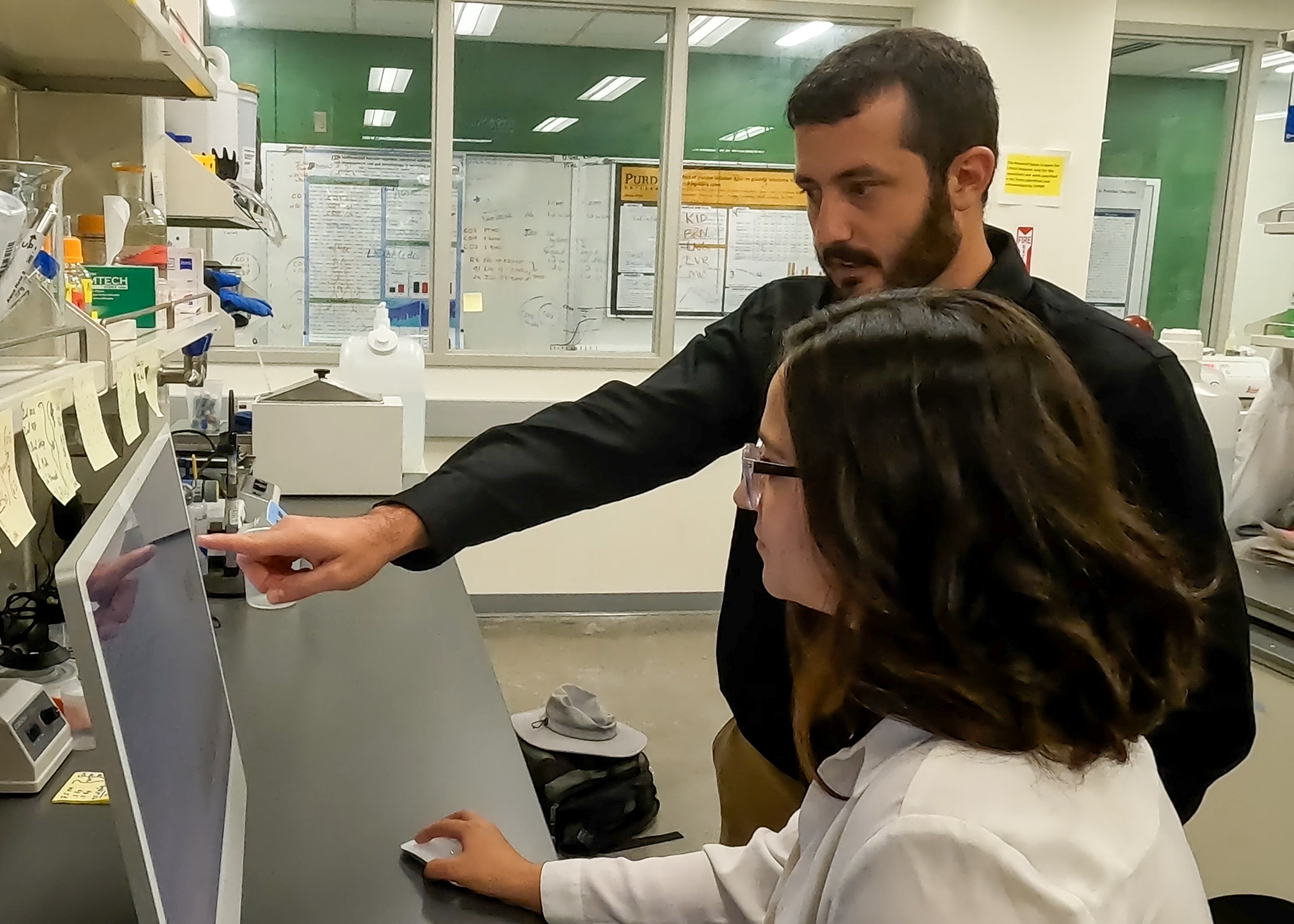Luiz Brito named 2025 University Faculty Scholar for research in animal genomics
Luiz Brito, associate professor of animal sciences, has been named a 2025 University Faculty Scholar in recognition of his significant contributions to quantitative genomics. His research focuses on using large-scale phenotype genetic data to improve livestock traits like behavior, welfare and resilience. As animal-sourced foods remains essential to global nutrition, Brito’s work is advancing food security and animal welfare.
Having grown up on a farm, I understand how difficult the life of a farmer can be. I wanted to find ways to help farmers increase profitability, reduce labor and improve their quality of life. I also want to improve the health of their animals by breeding animals that are more resilient so that they don’t get sick as much and are more adapted to environmentally challenging conditions.” -Luiz Brito
Brito earned his bachelor’s degree in animal sciences and master’s degree in animal breeding and genetics from the Federal University of Vicosa in Minas Gerais, and a Ph.D. in animal genetics and genomics from the University of Guelph in Ontario, Canada.
His research focuses on developing tools and novel traits for breeding more resilient animals by leveraging data from precision technologies, on-farm data collection schemes and multiomic variables. Working with partners, Brito has developed novel traits, advanced models and identified genetic markers associated with heat stress in pigs and cattle to enable selective breeding for improved heat tolerance. He also helped identify key environmental gradients to include in reaction norm models, significantly improving the accuracy of genetic evaluations for heat tolerance in livestock.
 Luiz Brito, associate professor of animal sciences (Purdue Agricultural Communications)
Luiz Brito, associate professor of animal sciences (Purdue Agricultural Communications) Brito has also worked on genetic resistance to diseases, such as Caprine Arthritis and Encephalitis in goats and food allergies in pigs, improving reproductive performance and functional longevity in pigs and cattle. Recently, Brito proposed new indicators of resilience based on various longitudinal traits such as milk yield variability recorded by milking robots, milk consumption by dairy calves recorded by automated milk feeders and variability in vaginal temperature in lactating sows recorded by wearable sensors.
Brito’s work has advanced the genetic improvement of understudied livestock populations across various countries such as Brazil, Peru and South Africa. In Peru, for example, he is conducting collaborative research and outreach with alpaca producers in the Peruvian highlands.
“The alpacas are being raised at very high altitudes in small communities that do not have a lot of resources or access to information about how to improve their management and breeding practices. Having the opportunity to go there and work with those communities, sharing knowledge and learning with them, really excites me. It’s a great way for us to have a bigger impact on the world while recruiting talented students,” explained Brito.
With over 220 peer-reviewed papers, Brito has made significant contributions to animal behavior and genetics, including the identification of cognitive traits in cattle. His achievements have earned him accolades, such as the 2024 Early Career Achievement Award from the American Society of Animal Sciences and three Seed for Success Acorn Awards from Purdue University.
Since joining Purdue in 2018, Brito has been devoted to educating the next generation of quantitative geneticists. He developed two graduate courses—Quantitative Genomics I and Current Topics in Genomics—and teaches the undergraduate course Animal Breeding and Genetics. Additionally, he led the development of the Purdue Graduate Certificate in Livestock Data Science and contributed to the development of the Purdue Animal Science Research Data Ecosystem. As a member of the College of Agriculture Curriculum and Student Relations Committee, Brito plays an important role shaping animal sciences education at Purdue.
One of my greatest passions is working with students. I really enjoy watching their journey—starting as undergraduates, discovering their passion for research, then progressing into master’s and Ph.D. programs. It’s rewarding to see their growth.” -Luiz Brito
Brito also leads interdisciplinary journal clubs and genomic data analytics groups, advises two student university clubs, co-leads the Purdue GenOMICS initiative and serves as the animal representative for the Institute for Digital and Advanced Agricultural Systems (IDAAS).
“I’ve always been open to saying ‘yes’ to a lot of things—whether it’s co-advising students in agronomy or being a part of an interdisciplinary project—which has opened the door to new opportunities,” explained Brito. “Developing collaborations across the department, college, university, U.S. and world is crucial to success."
 Luiz Brito working with a student in a lab within the Department of Animal Sciences (Purdue Agricultural Communications/Katherine Jacobson)
Luiz Brito working with a student in a lab within the Department of Animal Sciences (Purdue Agricultural Communications/Katherine Jacobson) Brito attributes his success to the support of his parents, mentors, colleagues and students, as well as the resources provided by Purdue, including college-wide workshops that introduced him to several collaborators.
I’ve received a lot of support from so many individuals here at Purdue. It’s hard to attribute my success to just one." -Luiz Brito





